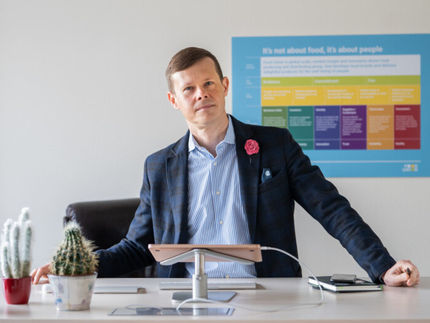Less ice, less vacation, less activities
New study from Appinio shows how inflation will determine summer 2023
Summer 2023 officially starts today. That means ice cream, festivals and vacations - right? Inflation and the cost of living are still very high. How do Germans feel about inflation? What impact does it have on summer leisure activities and vacation planning? Are people saving? And if so, where? For this purpose, the global market research platform Appinio surveyed 1,000 Germans in a representative study (quota by age and gender).

Symbol image
computer generated picture
Lack of budget for leisure activities
Three out of four respondents (72 percent) plan to spend less money on leisure activities this summer due to inflation. Germans mainly want to save on eating out (72 percent). Germans also plan to spend less money on weekend trips (57 percent), amusement parks and water parks (52 percent) and festivals (48 percent). 32 percent of Germans are even forgoing weekend trips and festivals completely due to inflation.
The reason: due to the increased cost of living, there is less budget available (74 percent). Increased costs of activities (63 percent) and transportation and mobility costs (45 percent) are also reasons for cheaper summer activities.
Vacation 2023 - not possible for many
Two-thirds of Germans want to save money this summer, especially on vacation (66 percent). 39 percent of those surveyed said they would even skip their vacation altogether this year. Savings are mainly made on accommodation (64 percent), eating out (63 percent) or the destination (60 percent). Less money is also being budgeted for leisure activities such as local admissions (55 percent).
Less ice cream and summer fashion
Summer without ice cream from the ice cream parlor? Unimaginable a few years ago, now reality. 73 percent of respondents say inflation is affecting their ice cream consumption behavior: 29 percent plan to eat less ice cream this summer, 27 percent will get ice cream for home more often and 17 percent will make their own more often.
Summer fashion is also being consumed less: 47 percent are buying slightly less clothing, and around 36 percent are buying significantly less due to inflation. This particularly affects women (42 percent vs. 30 percent of men). As a consequence, almost three quarters (73 percent) are turning more frequently to cheaper clothing brands for summer fashion.
Worry child inflation
Around 93 percent are (rather) worried about the rise in inflation. The higher the age of the respondents, the more concerned they are about inflation. While just 38 percent of 18- to 24-year-olds are worried about inflation, 62 percent of 55- to 65-year-olds are. At the same time, the need for transparency is increasing: four out of five Germans think it is important that a price increase for individual products is actively and openly communicated (81 percent). That is 7 percent more than a year ago (74 percent in June 2022).
Note: This article has been translated using a computer system without human intervention. LUMITOS offers these automatic translations to present a wider range of current news. Since this article has been translated with automatic translation, it is possible that it contains errors in vocabulary, syntax or grammar. The original article in German can be found here.
Most read news
Other news from the department business & finance

Get the food & beverage industry in your inbox
By submitting this form you agree that LUMITOS AG will send you the newsletter(s) selected above by email. Your data will not be passed on to third parties. Your data will be stored and processed in accordance with our data protection regulations. LUMITOS may contact you by email for the purpose of advertising or market and opinion surveys. You can revoke your consent at any time without giving reasons to LUMITOS AG, Ernst-Augustin-Str. 2, 12489 Berlin, Germany or by e-mail at revoke@lumitos.com with effect for the future. In addition, each email contains a link to unsubscribe from the corresponding newsletter.
Most read news
More news from our other portals
Last viewed contents

Pandemic changes the food retail trade - Germans want to eat healthier and more sustainably, shop more online and save more at the same time

Sniffing out carcinogens in foodstuffs - Andrea Hochegger, an analytical chemist at TU Graz, investigates whether foodstuffs can be tainted with harmful substances from packaging or during production
American Frozen Food Institute - Arlington, USA

BENEO invests in pulse-processing plant - €50 million investment enables BENEO to extend its footprint into the fast-growing market for sustainably produced plant-based protein ingredients

IFA industrielle Wiegetechnik GmbH - Rain, Germany

Sensors and cameras analyse vine quality




























































